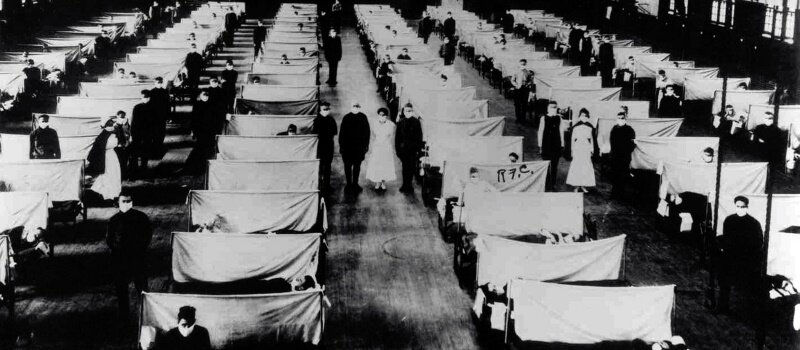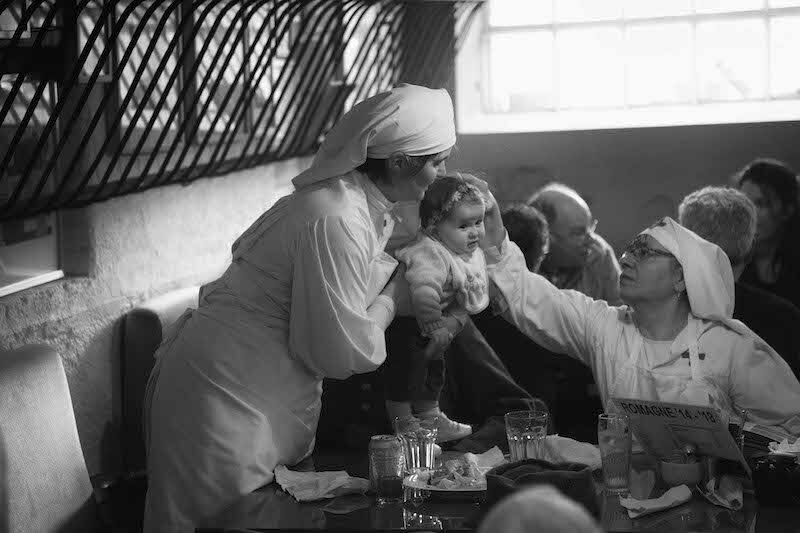A cap of horror
In his latest book A cap of horror Dutch medical historian Leo van Bergen has made an impressive selection of poems of British nurses who worked in First World War-hospitals.
A century later their poetry still reads as if it were written yesterday.
by Cor Speksnijer
They were the silent forces behind the frontlines, the White Angels of the Great War. Hundreds of thousands of nurses did what they could to ease the suffering of the innumerable wounded and mutilated soldiers. Some of them expressed their feelings in poems. Leo van Bergen, medical historian and writer, collected poetry by nurses who worked amid the horrors of trench warfare. He found sad, painful and desperate verses, but also poems on hope and love.
The First World War has been nicknamed ‘the literary war’, because of the surge in literary output. Amongst the millions of men who went to the frontlines were writers of prose and poets. War poets like Siegfried Sassoon, Rupert Brooke and Wilfred Owen became famous for their poetic descriptions of the atrocities of war. It is hardly known that women who participated in the war as nurses also wrote poetry.
When people talk about the war poets, they never mention women, even though nurses who literally worked with blood on their hands, wrote touching poems. They are forgotten poets’, says Van Bergen.
Leo van Bergen
He discovered poetry of unmistakable quality. To pay tribute to this literary heritage he selected forty poems and a cycle of sonnets and translated them into Dutch for his book A cap of horror.
How did you find these poems?
‘I knew that female writers of prose like Mary Borden, Vera Brittain and Enid Bagnold had also written poems. I was searching for their poetry and I read collections of poetry on the First World War that I didn’t know before.’
You found poems by seventeen female British poets. That doesn’t seem like an impressive number to me.
‘I think it’s quite a lot. You have to keep in mind that in the beginning of the 20th century the vast majority of women had little to no education. Among the volunteers in the hospitals were a few educated women. They were students at Oxford University or were active in the suffragette movement. A few were professional writers.
‘I tried to collect poems of German Pflegerinnen as well. I wanted to find out if there was a difference in experiences and emotions between both sides of the frontlines. I discovered only one poem by a German nurse. It was written in the first days of the war and was basically a call to destroy the French. Not a literary highlight.
Germany relied mainly on professional nurses, trained in charitable and religious institutions. I suppose there were very few literary talents among them.’
Vera Brittain (1893-1970)
It is said that many Europeans were in the mood for a good old battle in 1914. After defeating the enemy the victorious soldiers would soon return home. Did you observe this enthusiasm in the poems?
‘I noticed that not all women were against the war, but I didn’t see enthusiasm. For most of the nurses it was only natural that they would help their compatriots at the front.
‘In the hospitals they were soon confronted with the effects of war. They did not see heroic exploits or victories, but an endless stream of human wreckage. Over the course of time, the tone of the poems became more desperate. The nurses started wondering what they were doing at the front. They worked as hard as they could, but the number of wounded, mutilated and dead only increased. A sense of futility crept into their poems.
‘Gradually the anti-war sentiment grew. When Vera Brittain had to nurse a group of German prisoners of war, she realised that they were victims, just like her English friends who were killed or wounded.’
Illustration by Irma Jansen from A cap of horror
What were the motives to volunteer?
‘In the poems the women hardly mention their motives. It is known that compassion, adventure, lovesickness and social pressure could have played a role. Brittain went to war because her brother and her lover did. Had they stayed in Oxford, she probably wouldn’t have volunteered.
‘A Dutch Jewish nurse called Rosa Vecht went to the front in Belgium after her father didn’t allow her to marry her non-Jewish boyfriend. Vecht, who was killed in 1915, used the war to escape her parental home.’
Rosa Vecht (1881-1915)
Were there guidelines for deciding who was eligible for medical treatment?
‘Yes. Implicitly and explicitly. A military doctor could say: why are you bringing me this half dead person? What can I do for him? It may sound crude, but it makes some sense from a humanitarian point of view. During the time you spent on treating one severely wounded soldier, you could also have been helping several less seriously injured. Anyway, recovered soldiers would probably be back in hospital soon, either dead or alive.’
Did nurses realize that they were often treating wounded soldiers to make them fit for a return to the front lines?
‘Yes. Some poems show that the nurses were aware of that. Vera Brittain realized that her work was not merely humanitarian. She knew that she worked in a military setting and that she had to take military purposes into account. It made some nurses cynical, but most of them did not realize it.
Mary Borden (1886-1968) by Glyn Warren Philpot, who also portrayed War Poet Siegfried Sassoon
In 1918 the Spanish flu caused millions of deaths. Did the poets refer to this pandemic?
‘It surprised me to see that there weren’t any references to the Spanish flu, whilst the pandemic must have contributed to feelings of hopelessness. Apparently the situation in the hospitals was so miserable that the flu didn’t make much difference for the nurses. ‘The death toll of the coronavirus is very small compared to that of the Spanish flu. There are similarities, though. Suddenly nurses are highly respected. I wonder if this appreciation will disappear after the corona crisis, as it did after the First World War. I’m afraid there will be psychological problems among nurses after covid. Not only as a result of the workload, but also because they see that people aren’t getting optimal care due to the focus on corona patients.’
Did nurses often struggle with psychological problems?
‘Yes. Not only because their work was too demanding, but also because they couldn’t give everybody the care they needed. They wondered why one patient was more entitled to receive care than another, and why they had to leave some of the wounded unattended. That was hard to accept.
‘After the war many women could not get the images out of their heads. Many suffered from depression and fatigue. The war had been horrific, but it was also the most exciting period of their lives. Not only the horrors caused psychological suffering, but also the notion that the rest of their life would be in the shadow of their war experiences.
‘During war time, nurses were treated with respect. After the war they were forced back into their former roles. Professional nurses went back to maternity hospitals. Housewives looked after their children again. Some women looked back on their time at the front with nostalgia. They missed the war.’
Two white angels and child. Reenactors at Museum Romagne 14-18 photo © Diederik van Vleuten
In a soldier’s hospital II: gramophone tunes
Through the long ward the gramophone
Grinds out its nasal melodies:
“Where did you get that girl?” it shrills.
The patients listen at their ease,
Through clouds of strong tobacco smoke:
The gramophone can always please.
The Welsh boy has it by his bed,
(He’s lame - one leg blown away -
He’ll lie propped up with pillows there,
And wind the handle half the day.
His neighbour, with the shattered arm,
Picks out the records he must play.
Jock with his crutches beats the time;
The gunner, with his head close-bound,
Listen with puzzled, patient smile:
(Shell shocked -he cannot hear a sound).
The others join in from their beds,
And send the chorus rolling round.
Somehow for me these common tunes
Can never sound the same again:
They’ve magic now to thrill my heart
And bring before me, clear and plain,
Man that is master of his flesh,
And has the laugh of death and pain.
Eva Dobell (1876-1963)
A Cap of Horror.
First World War Poems of Female nurses and carers (collection, introduction: Leo van Bergen)
Uitgever / Publisher: dt (duidelijke taal) Nijmegen
ISBN: 978-90-830450-1-6









